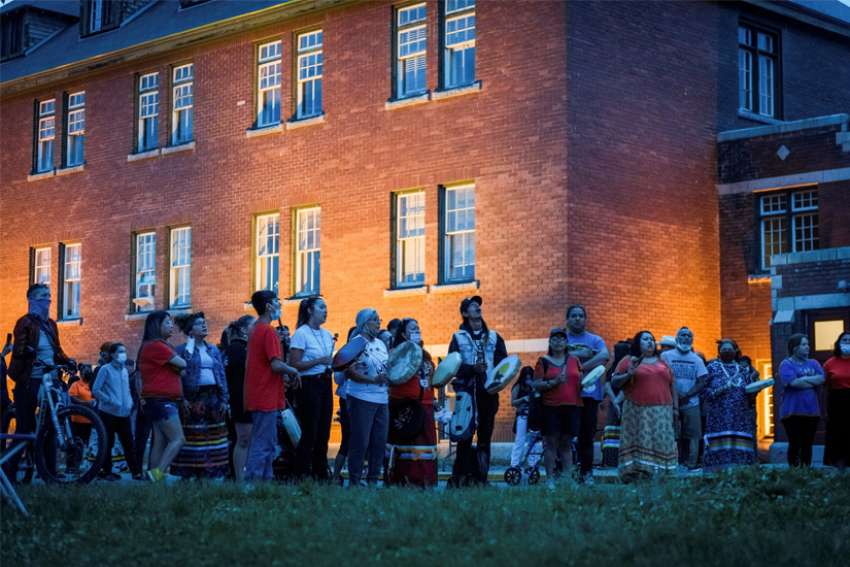Academic theologians spent four days in virtual meetings of the Canadian Theological Society from May 31-June 3. In the meetings, theology professors spoke extensively about how they are responding to the discovery at the Kamloops Residential School and the entire residential school tragedy.
At Ottawa’s Saint Paul University the faculty of theology has invited First Nations representatives to speak with them.
“We are committed to listening and learning first and foremost,” said professor of systematic and historical theology Catherine Clifford.
Clifford is aware of the many apologies issued over the years by religious orders and dioceses directly involved in administering the schools. The idea that there is no such thing as a national, Canadian Catholic Church or the argument that dioceses and religious institutes not directly involved cannot apologize for things they did not do are not convincing, she said.
“All of this ecclesiological hair splitting is lost on Canadian Catholics and Indigenous people looking for a way forward on the path to reconciliation,” she said. “Catholics supported the residential school system spiritually, morally and financially. We regularly prayed and took up collections for the missions and gave unquestioning support to a form of evangelization that we have come to see was shamefully far from a faithful reflection of the Gospel.”
All of Canada’s bishops speaking together would make it clear that Catholics, who ran about 70 per cent of the schools, know their responsibility.
“We all share, in varying degrees, and are complicit in this tragic episode of history and have need to repent of it, collectively,” she said.
“Penance, public penance, conducted by leaders in the Church,” would constitute a “theologically coherent response,” said Atlantic School of Theology professor David Deane.
“Pressure on Rome for an apology, from all quarters, is a no-brainer. We need to do it,” Deane said. “The Pope should apologize.”
Clifford points to the example of St. Pope John Paul II’s millennium confession at the doors of St. Peter’s, when the pope pleaded for forgiveness for those times when the Church allowed coercion and even physical violence to drive conversions of Indigenous people,
Regina archdiocesan theologian Brett Salkeld cautions against making demands of Canada’s bishops without knowing how the prelates may be working on reconciliation away from the public spotlight.
“Bold public statements by theologians who feel the need to call bishops out may serve to make theologians look good, but they can make the delicate work bishops are doing harder, especially if they are not well informed,” Salkeld said.
Salkeld wants theologians to teach the Church how and why Catholics fell into sin running the schools.
“The Church failed on this file, not because it followed its own lights and stood against the culture, but precisely because it abandoned its own best lights on matters of evangelization and culture,” he said.


